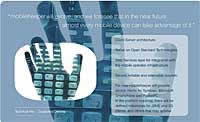This morning the UK Film council launched a 94-page report containing 30 measures they feel will help defeat the spread of unauthorised film copying in the UK.
Compiled by the Anti-Piracy Taskforce convened by the UK Film Council, it contains suggestions of short, medium and long-term actions aimed at the UK Government, the UK film industry and, what they call, “Government-backed and other film sector stakeholders”. Started in Summer 2003, it has taken nearly 18-months to complete.
The report is being forwarded to The Creative Industries Forum on Intellectual Property, which was launched by the UK Government in July this year. Headed by the Department for Culture, Media and Sport, Department of Trade and Industry and Patent Office, the group contains Ministers from eight Government Departments including the Treasury and Home Office.
There is clearly a large problem with DVD’s being commercially copied and offered for sale in the UK. We’ve been surprised in the past, when offered copied DVD’s of many feature films. A while back one of the writers at Digital Lifestyles was offered the then unreleased Incredibles, a Pixar film, by an Oriental lady with a bulging bag of DVD’s with colour photo copied covers. The price for this unreleased film? Just five pounds. This was made all the more cheeky by us being a stones throw from the centre of the UK film industry.
For research we bought one, and found the audio quality to be terrible at the start of the film. Persisting, we were later amused to see the classic “Bloke off to the toilet” head raise up and pass in front of the screen, only to return 10 mins later. From the size of the mystery person, it was clear that this has been shot in a small private screening room, probably during a preview, possibly from within the projector room. The likelihood was that this wasn’t shot by a member of the public, but by someone within the industry.
When discussing the availability of commercially copied DVDs with others, we heard that there are regularly stalls on the high street in Kilburn, London that are openly selling copied DVDs, with the police walking past not taking any notice.
Based on figures from Federation Against Copyright Theft (FACT), the report estimates the value of black market in pirate DVDs in the UK to be £400-£500 million in 2003 and they expected it to exceed £1 billion within three years, based on their retail price. In the full report (yes, we read it) they list the main sources of copied DVD’s to be Pakistan (36%), Malaysia (31%) and China (14%).
We found it very confusing that the authorities or the film companies didn’t appear to be taking, or even publicly threatening, actions against commercial copiers, when there was considerable noise being made about the imminent death of the film industry being caused by file sharing networks. It’s more than obvious that the current installed base of DVD players is significantly bigger than those with computers and a broadband connection.
Down to their suggested actions. They felt that trading standards don’t have enough powers to combat trading in copied films and would like them to have more. There are a couple of suggestions to clamp down on car boot fairs (public markets where individuals turn up, pay a fee and sell their goods) including; ensuring that people registering to sell be over 18 (they say that currently children under 14 are being registered as the stall holders, and legal action cannot be taken against a child under 14); making the registration of car boot fairs compulsary; and there being powers to close down car boot sales where pirate DVDs are persistently sold, which they told us would be a “last resort measure.”
Some of the points mimicked ideas running in the USA, such as making the act of camcording in a cinema a clear criminal offence (it is currently a civil offence) and providing incentives for cinema staff to look for unauthorised camcorder usage.
It was encouraging that some of the problems that are normally glossed over were addressed. To this end, one of their short-term suggestions is to conduct a thorough review of security risks in the film making process, looking to develop improved security procedures for the handling of film prints and digital materials.
Despite a whole chapter in the reports appendix “Learning from the music industry”, we were disappointed to see that “Developing clear commercial strategies in relation to Internet Film Distribution” was only listed as a medium-term goal. Indeed, when we spoke to the UK Film Council, we were further disappointed to hear the same old delaying arguments of “when the technology is in place and the broadband market is significant” being rolled out. It’s clear to all who pay any attention to this area that this point has already been reached otherwise, people wouldn’t be swapping films online, was met with a blanket, non-committal response.
UK Film Council
 If you’ve ever had your phone stolen, left it in a cab or, like a colleague of ours, managed to send it spinning down the u-bend whilst attempting a tricky feat of toilet-based multi-tasking, you’ll know the pain of unexpectedly parting company with your phone.
If you’ve ever had your phone stolen, left it in a cab or, like a colleague of ours, managed to send it spinning down the u-bend whilst attempting a tricky feat of toilet-based multi-tasking, you’ll know the pain of unexpectedly parting company with your phone. Working as extended storage for the mobile device, the application offers “over the air” data backup for the mobile device allows storage and recovery of contacts, calendar, tasks, SMS, MMS, ring tones, images, videos, J2ME applications and anything else you can fit on your phone.
Working as extended storage for the mobile device, the application offers “over the air” data backup for the mobile device allows storage and recovery of contacts, calendar, tasks, SMS, MMS, ring tones, images, videos, J2ME applications and anything else you can fit on your phone. Video streaming specialists,
Video streaming specialists,  The technology uses Forbidden’s ground breaking FORscene live compressor, that utilises advanced digital compression techniques to deliver a live video feed to PCs, Macs and laptops via the Web.
The technology uses Forbidden’s ground breaking FORscene live compressor, that utilises advanced digital compression techniques to deliver a live video feed to PCs, Macs and laptops via the Web.